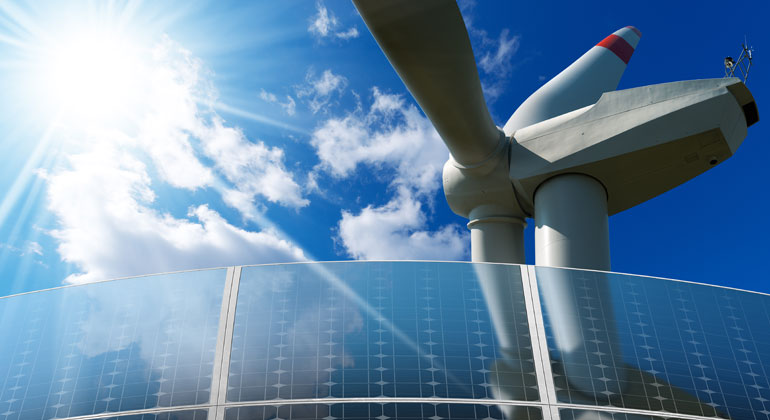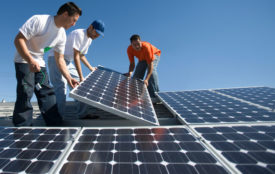A big victory for the fossil industry at COP28
BUT: renewables are growing from the bottom – Let us make 2024 the year of renewables! By Stefan Gsänger
The UN Climate Change Conference COP28 ended in a big victory for the fossil fuel industry: Although it is abundantly obvious that the world needs to stop burning fossil fuels and switch entirely to renewable energy, the final declaration only refers to a “transition away from fossil fuels”. There was no agreement on when this transition would take place and whether it would end with a complete phase-out of fossil fuels. Such vagueness leaves plenty of room for fossil fuels, combined with old approaches such as “carbon markets”, “carbon pricing” and unproven technologies such as CCS all of which lay the groundwork for many more decades of fossil fuel burning. The nuclear sector also scored a victory with the atomic alliance, a group of only about 20 countries that has attracted a lot of attention for their propagated goal of tripling atomic capacity by 2050.
What about the role of renewable energy at the COP28 in Dubai? Its key role as the main solution to the climate crisis and to the energy crisis can no longer be completely ignored, so the strategy has changed from ignoring or ridiculing renewables to containing their growth. In line with this, many organisations pushed for the target to triple the renewable power capacity by 2030 – which sounds ambitious. But when we look at the facts, such a target is neither sufficient nor ambitious. As the CEO of a Chinese wind turbine manufacturer put it: “If you look at the wind and solar growth rate in the past, you see triple is not difficult because all renewables have been lower cost than fossil fuel.”
So what has been the purpose of the target to triple renewable power? Maybe it can and should be seen as a tool to set a limit for renewables – be it legal or just mental? Certainly, it is not enough to meet the climate targets or to accelerate energy access. Some countries rightly argue that such a target doesnt make sense for them as their renewables power share is already above 30% – others find it too ambitious. And, of course, the target is non-binding, with no annual targets, no pathways, no tools how to achieve it – and only covers the power sector, not transport, heating & cooling, or industrial uses. So what has been hailed by many as a major achievement may actually delay the transformation towards renewables and, ultimately, the fight against the climate crisis.
All in all, COP28 in Dubai seemed to have been orchestrated by the fossil fuel lobby: starting with the heart-warming but insufficient establishment of the loss & damage fund, the conference presidency came up with a terrible draft of the final declaration, accompanied by OPEC as the bad guy warning against any efforts to phase out fossil fuels – and in the end the great relief that it wasn’t as bad as it had looked. But the outcome is terrible, let us not forget. Despite the applause, even from climate activists who were more interested in bureaucratic achievements than real progress.
Now let us look at the real world: The multiple crises are all related to the energy supply system and the dominance of fossil and nuclear. Fortunately, driven by people all over the world, renewables has made great strides in the last 25 years and they are now ready and available to meet all of humanity’s energy needs in an equitable, accessible and sustainable way. So the practical answer is more than obvious. The new energy paradigm must be: renewable energy only – 100% renewable energy in all sectors, built from the bottom up.
And the world has seen encouraging progress not only in technology development, but also in technology deployment. The world has just passed 1’000’000 Megawatt of installed wind capacity, and the world is in track to install more than 400’000 Megawatt of solar PV in 2023 alone! The growth rates are still increasing, the technologies are becoming more affordable and many countries, municipalities, communities, businesses have already made their choice, for renewable energy.
The movement towards a renewable energy world is underway, and can be slowed down, but not stopped, by world leaders meeting at a global conference like COP28. Aware and encouraged by the great achievements the world has already made in renewable energy, it is now up to the many of us to act: We must switch to renewable energy as soon as possible.
Let us not get distracted by ideological debates about, say, electric cars or heat pumps. Let’s just do it – the more, the better. Every solar panel, every wind turbine, every heat pump or electric car is an active and direct contribution to breaking the evil blockade for a just world, and it is a direct and active contribution to a climate friendly, more participatory world.
Let us act now! Let us make 2024 the year of renewable energy, completely and from the bottom up!







